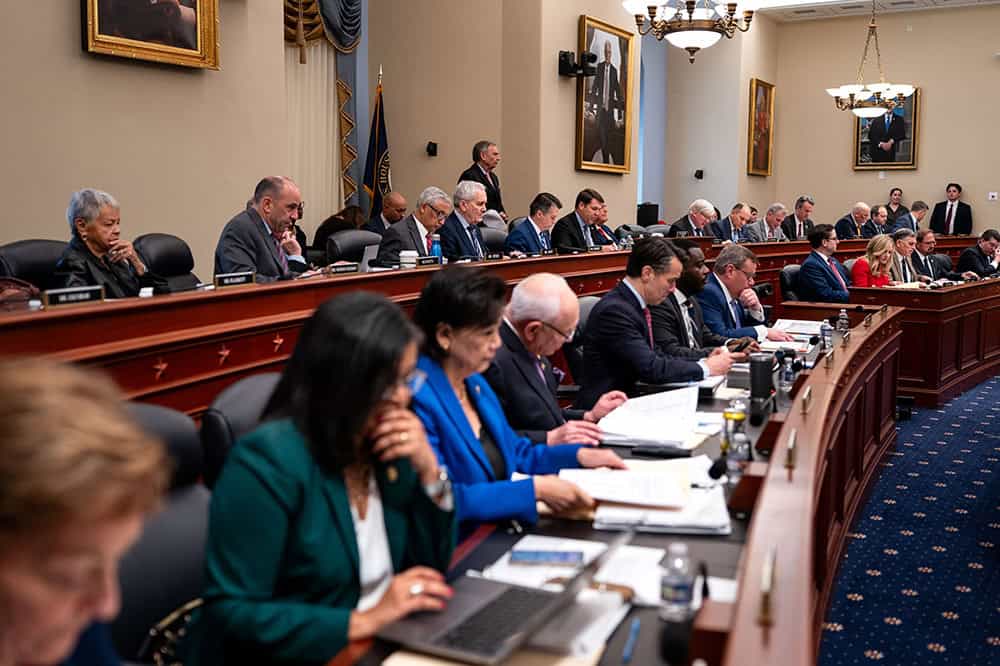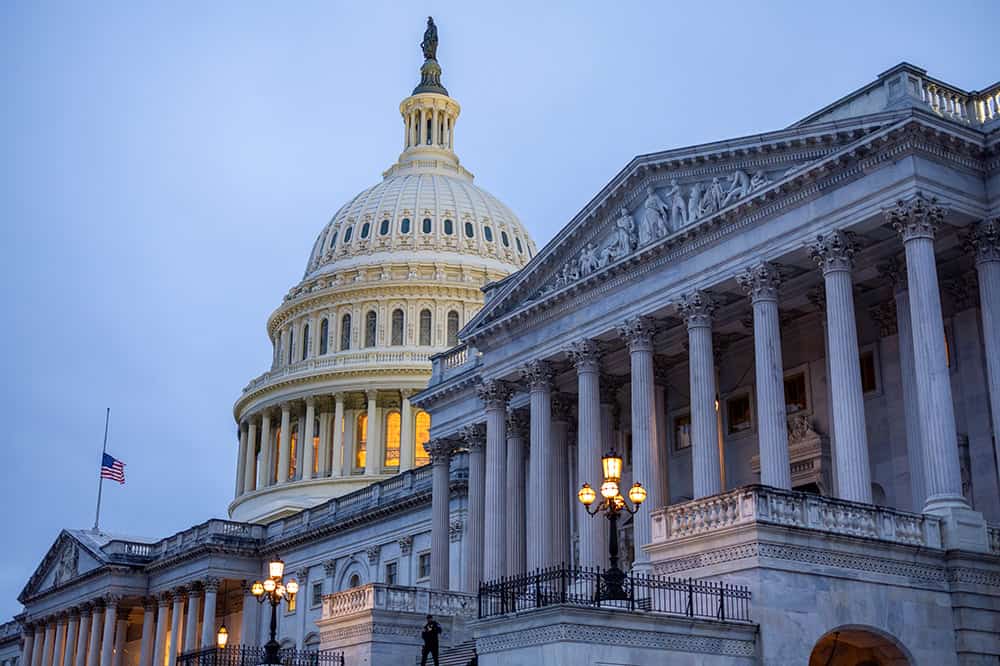Here’s How No Tax on Overtime Would Affect Federal Revenues and Tax Fairness
Last Updated April 8, 2025
As part of a group of tax proposals, Republican leaders recently called for eliminating taxes on overtime pay. Excluding overtime compensation from federal taxes would create a new tax expenditure — also known as a tax break — that would reduce federal revenues and make the U.S. tax system more complex. Here, we review how much no tax on overtime could impact federal tax receipts and deficits, as well as its effect on fairness within the federal tax system.
What Is Overtime Work?
National standards for overtime work were first outlined by the federal government in the Fair Labor Standards Act (FLSA) of 1938. A New Deal-era law, the FLSA established the national minimum wage, set overtime pay practices, and provided child labor protections. The act mandated that employees be paid at least one-and-a-half times their usual pay rate for hours worked beyond the standard work week (40 hours). According to the Congressional Research Service, the purpose of the overtime provision was to “reduce unemployment by encouraging employers to hire more workers,” which would cost less than paying the required premium for the overtime work of an existing employee. Some working people are not covered by the overtime pay requirements – FLSA-exempt employees mostly include executive, administrative, and professional (EAP) employees. Generally, the EAP exemption applies to employees who are paid on a salary basis above a certain income threshold and whose duties meet certain tests.
Nationally, only approximately 6 percent of employed individuals reported that they typically worked overtime in 2024.
No Tax on Overtime Would Reduce Federal Revenues
Like other compensation income, overtime pay is currently subject to both individual income taxes and payroll taxes. If lawmakers enact legislation to exclude overtime pay from taxes, the federal government would lose hundreds of billions in revenues. Estimates from the Tax Foundation and the Budget Lab at Yale find that excluding overtime pay from only individual income taxes would reduce federal revenues by between $680 billion and $866 billion over the 2025 to 2034 budget period. If the tax exclusion was extended to both individual income taxes and payroll taxes, the cost would roughly double: between $1.3 trillion and $1.5 trillion over 10 years.
At this stage, there is no detailed proposal, and the fiscal impact of the policy would depend on the specific policy. For example, if only the 50 percent additional portion of overtime pay was excluded from taxation, revenues would fall by $227 billion over 10 years, according to Tax Foundation. If no tax on overtime was broadly construed to exclude all pay related to working more than 40 hours a week, Tax Foundation estimates revenues would decrease by $3.1 trillion over 10 years.
Additionally, the actual revenue loss from the proposal could be even greater than current estimates, depending on the extent to which workers and employers modify their behaviors because of the new opportunity for tax savings. For example, an employer may be incentivized to switch a salaried, FLSA-exempt employee who regularly works more than 40 hours a week to an hourly wage that, with overtime, is equal to the employee’s current pre-tax income. Other employees might prefer taking overtime pay to receiving bonuses under this proposal. Those changes would result in savings for the employer as well as greater after-tax income for the employee.
High-Income Taxpayers Would Receive Larger Tax Cuts from No Tax on Overtime
According to an analysis from the Institute for Taxation and Economic Policy, most of the tax benefits from no tax on overtime would go to the highest income taxpayers. Excluding overtime pay from individual income taxes would reduce the tax liability of the bottom 60 percent of taxpayers by an average of just $80.00 in 2026. If overtime pay was also excluded from payroll taxes, the tax savings for that group would increase to just $180.00. By comparison, for taxpayers in the top 20 percent, a tax exclusion for only individual income taxes would save them and average of $940.00. Tax savings for that group would rise to $1,480.00 if payroll taxes were included in the tax exclusion.
No Tax on Overtime Could Undermine Tax Equity
Principles of tax fairness state that taxpayers with similar total income and similar filing statuses should pay similar taxes — otherwise known as horizontal tax equity. No tax on overtime would reduce horizontal tax equity, as those with similar total income could be taxed differently depending on the amount of overtime hours they worked. In the example below, a taxpayer regularly working five hours of overtime a week would pay 30 percent less income tax compared to a taxpayer with the same pre-tax income but who is FLSA-exempt or does not work overtime.
There are some who argue that taxing overtime pay at a lower tax rate than base wages would have the benefit of not penalizing work effort. As explained by the American Enterprise Institute: “Because overtime hours are a reasonable proxy for effort, exempting overtime pay from taxation could be a more efficient way to encourage work than a broader income tax cut that increases the returns to both ability and effort.” However, the AEI authors also conceded that the current definition of overtime is not a perfect proxy for effort. For example, some individuals work more than 40 hours a week but do not receive overtime pay because their hours are split between multiple jobs. The definition of overtime may also affect workers’ choices to choose overtime instead of salaried pay. As a result, AEI scholars observe that the definition of “overtime” in an overtime pay tax exclusion proposal would “have a significant impact on the budget deficit.”
Conclusion
Excluding overtime pay from federal taxes would meaningfully worsen the U.S. fiscal outlook, while most of the tax benefits from the tax cut would go to the highest-income 20 percent of taxpayers. The actual fiscal impact would vary considerably based on the specifics of the policies enacted. If policymakers pursue no tax on overtime, it should be accompanied by other reforms to the tax system and the federal budget that align with principles of fiscally responsible tax reform and improve the fiscal outlook.
Image credit: Chip Somodevilla/Getty Images
Further Reading
No Taxes on Tips Would Drive Deficits Higher
Eliminating taxes on tips would increase deficits by at least $100 billion over 10 years. It could also could turn out to be a bad deal for many workers.
Full Array of Republican Tax Cuts Could Add $9 Trillion to the National Debt
Fully extending the TCJA would cost approximately $5.0 trillion, while other elements of the Republican tax agenda also have large price tags over ten years.
Why Do Budget Baselines Matter?
Applying the current-policy baseline would not only be fiscally irresponsible in terms of this year’s tax debate, but it would set a dangerous precedent for the future.


